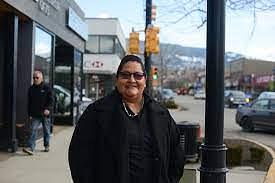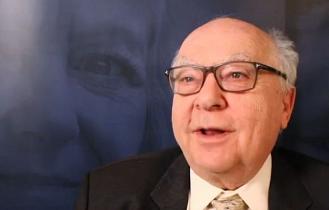How cannabis helped this Syilx woman walk again
Sitting in a little cafe in Syilx territory in downtown Vernon B.C., Jayna Pooley clinks her spoon against her cup as she gingerly stirs her coffee. The sun is out and she’s preparing for a meeting later that day to talk about Cannabis with the Union of B.C. Indian Chiefs.
Pooley has been sharing her story, one of personal perseverance, as a way to inspire others to explore the healing properties of cannabis, a medicine she credits for helping her walk again.
Pooley introduces herself by her nations.
“My Dad used to call us, NavajoOpiOkaShwap,” she says. She’s Navajo, Hopi, Okanagan, and Shuswap and she now lives and works in her community in Inkumupulux (Head of Okanagan Lake) on the Okanagan Indian Band, where she owns a cannabis dispensary.
Pooley lost her ability to walk at 32 years-old, after years of working in the forestry and fisheries industries. Her journey to recovery brought her to cannabis, and years later, she’s now the proud owner of Top Hat Cannabis in OKIB.
She just celebrated two years of being open for business.
“I sell medical grade, tested edibles, tinctures, topical salves combined with THC and CBC (Cannabichromene) and our traditional medicines: in teas, and oils,” says Pooley.
Pooley grew up on her lands of the Navajo Nation until she was in her late teens, when she returned home to the northern side of the medicine line, on Secwepemc and Syilx territories. After she graduated high school in Tk’emlúps (Kamloops), she completed a diploma for Natural Resources from Nicola Valley Institute of Technology, and soon after started working in her field.
“I worked alongside all the guys on big ships and boats, and I got to see our whole territory by boat,” Pooley says. “I’m truly really grateful. It was an awesome career. I stayed in the area for about five to six years.”
But as much as she loved it, the physical labour was hard on her body.
“Working on steep hillsides, working on ice, and there were days I was covered in ice in the middle of winter, while I was doing work with fisheries,” she remembers. “We would sometimes have to break ice to get down the river, so I would spend a lot of time in the cold waters right up to my torso.”
Pooley also spent much of her time playing sports and physical activity was a major part of her life, she says. She was about to move to Calgary to take on a new role as a Service Technician when her life changed dramatically.
“I had all my stuff packed, my truck was packed, my family’s freezers were full of fish, the community was full of fish, I was ready to go,” Pooley says.
“I went to jump out of bed and couldn’t walk, I fell to the ground in excruciating pain.”
Her family called the ambulance and Pooley says she spent months in and out of the hospital. She was diagnosed with psoriatic arthritis and started on a variety of different medications, she says.
“It came to a point where I finally found a comfort zone, but it was with really heavy medications, which I knew would affect my liver and kidney over ten years.”
According to the Arthritis Society, psoriatic arthritis (PsA) is “a type of inflammatory arthritis that usually appears in people with a skin disease called psoriasis” and that “there is no cure for PsA, but when you are diagnosed early and start the right treatment, you can take control of your disease and avoid severe damage to your joints.”
“I had to really make a choice as to what I was going to do, to either continue with these medications, or find some sort of alternative, so the search was on,” says Pooley.
Pooley began to ask around about some alternatives to heavy medications, when she was introduced to a salve. The salve had a specific smell to it that reminded her of her childhood.














